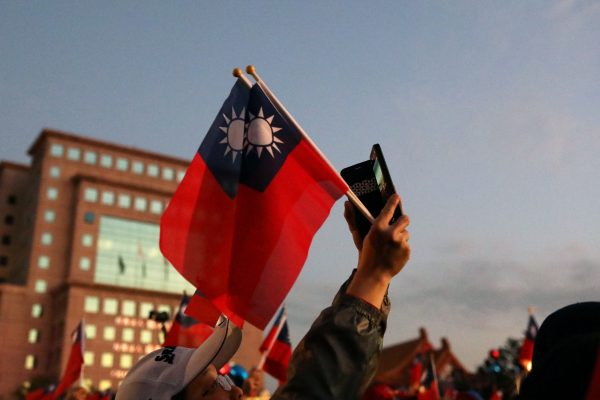Just prior to ringing in the new year, Taiwan’s ruling Democratic Progressive Party (DPP) decided to bypass legislative committee deliberations and pass the ‘anti-infiltration bill’ on 31 December 2019 to combat falsified news stories delivered from China by utilising its majority in the Legislative Yuan.
President Tsai Ing-wen said Taiwan ‘urgently’ needed to pass a planned anti-infiltration law to protect Taiwan’s democracy from the threat of Chinese disinformation, but the opposition party, the Kuomintang (KMT), claims that the bill is an unusual tool that may hurt Taiwan’s democracy. These opposing interpretations of the anti-infiltration bill from Taiwan’s two major parties confirms that political attitudes toward China still dominate the partisan cleavage in Taiwan.
The anti-infiltration bill is reminiscent of McCarthyism in the United States from the 1940s to the 1960s. The KMT warns that the right to free speech is being jeopardised by this bill. This was illustrated recently when many individuals, including seniors, were questioned by police for spreading false criticism about the government.
This is a worrisome reality for citizens accused of sharing information that they believed was accurate. All they did was click ‘share’ on social media and law enforcement arrived at their houses the following days. While protecting Taiwan’s democracy from China’s disinformation is a must, internet censorship in Taiwan is not.
The ruling party has been able to ride the wave of anti-China sentiment generated by the Hong Kong protests to gain support from both young people in Taiwan and Western democratic allies. Undoubtedly, people in Taiwan support politicians who take a tough stance on China, but that does not extend to cutting off economic ties with China completely.
Western media is largely reporting that the DPP passed this bill to protect Taiwan’s democracy from China and to encourage voters to support DPP politicians at both presidential and legislative level elections. But the bill might actually be hurting the DPP’s chances instead. The vagueness of the bill may lead to backlash among some voters who might see potential for its weaponisation by future governments seeking to target political opponents.
Although China policy plays a significant role in Taiwan’s elections and the majority of the island’s citizens consider Taiwan an independent country, they are extremely risk averse and pragmatic on future Taiwan–China relations. According to a 2019 survey conducted by Taiwan’s National Chengchi University, more than 80 per cent of Taiwanese voters want the government to maintain the status quo, rather than sacrificing their democratic way of life and economic prosperity for radical political changes.
Presidential hopefuls and the future majority party in the legislative branch need to present a solution to the voters, not just anxiety. Igniting anti-China sentiment may boost the party’s popularity in the short term, but this may not last long enough to win the election. The missing truth about this election among Western media viewpoints is that the DPP is losing support mainly due to dissatisfaction with poor overall government performance, rather than its China policy. According to the latest Taiwan’s Elections and Democratization Studies survey, over 60 per cent of voters are dissatisfied with government’s economic performance, for example. It was the economic voters who caused the DPP to lose the midterm elections in 2018 with a considerable margin, and they may cause another surprising electoral outcome.
The results of this election will be significant. There are over 19 million eligible Taiwanese voters who will decide the future of Taiwan’s democracy. Although most commentary suggests that the incumbent Tsai is likely to win, the election outcome is still uncertain.
The anti-infiltration bill is a double-edged sword as it may mobilise voters with an anti-China attitude to support the DPP but could also alienate voters. More specifically, the partisan animosity and generational gap are vast in terms of how supporters of the two camps view this bill and this polarises society. Whoever wins will not only need to keep protecting Taiwan from China’s intervention, but they also have to unify Taiwan from the divisions caused by the current election.
Dennis LC Weng is Assistant Professor of Political Science at Sam Houston State University.
Victoria Makanjuola is an MA candidate in the School of Media and Public Affairs at George Washington University.

